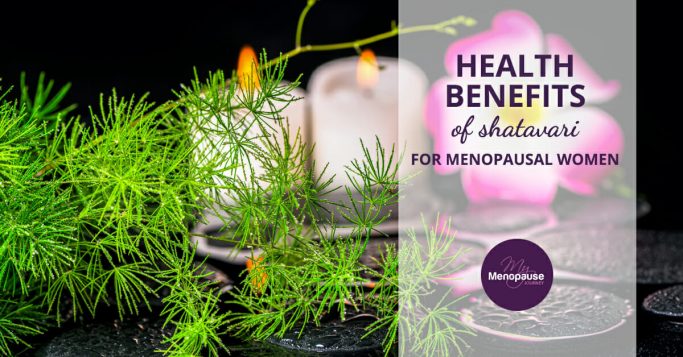Dong Quai is one of the ancient herbs used in Asia for medicinal benefits. Its roots have been valued for thousands of years, as it could alleviate many illnesses. Today, Dong Quai is acknowledged worldwide as a proven effective alternative cure to sicknesses such as menopausal symptoms.
What is Dong Quai?
Dong Quai, or Angelica Sinensis, is an herb indigenous to China. The Angelica plant grows at the high altitudes of China, Japan and Korea, where the climate is cool. It is a member of the celery family and is often referred to as “female ginseng”. The plant is harvested during autumn, and its flowers are white, fragrant and umbrella-shaped that bloom during June and July.
Dong Quai, has varying names but is most commonly known as Chinese angelica, toki, dang gui, Angelica polymorpha var. sinensis, Angélique de Chine, Angelicae Gigantis Radix, Angélique Chinoise, Angelicae Gigantis Radix, Angélique Chinoise Chinese Angelica, Dang Gui, Danggui, Danguia, tang kuei, tanggwi or simply the Angelica plant.
Dong Quai for Menopause
Dong Quai is an herb full of nutrition and components that help in alleviation of menopausal symptoms like hot flashes, sleep problems, night sweating, and headaches. Most of the time, Dong Quai is used together with other supplements or medicines like chamomile, black cohosh, red clover, and ginseng to improve its effectiveness for menopausal relief.
How Dong Quai Works
Dong Quai is one of the phytoestrogenic plants. It contains phytoestrogens that work similarly with estrogen in the body. And because the symptoms felt by menopausal women are due to the declining level of hormones such as estrogen, phytoestrogen works by filling up the needed hormones, which results in a reduction or elimination of menopausal symptoms.
Other Uses of Dong Quai
Dong Quai is also used as blood purifier that could help illnesses like hypertension, joint pain, infertility, ulcers, anemia, constipation and allergy attacks. Some take Dong Quai by mouth to treat skin discolorations and psoriasis.
Risks of Dong Quai
The use of Dong Quai is possibly safe when taken by mouth. However, taking Dong Quai orally or when applied to the skin increases the skin’s sensitivity to sun rays. This might cause a greater risk of cancer. Moreover, taking Dong Quai for a long period of time is possibly unsafe, as it contains carcinogens or components that may cause cancer.
Dong Quai is not recommended for pregnant women as it may affect the muscles of the uterus. There was also a report where a pregnant woman who took Dong Quai in her first trimester resulted in congenital defects. On the other hand, there is not enough evidence of Dong Quai’s safety for breastfeeding women; therefore, it is not advised for both.
Using Dong Quai could also slow down blood clotting. It is not recommended for individuals with bleeding disorders to undergo surgery and those with protein S deficiency.
Self-heal With Dong Quai
You can make a decoction of the herb. Chop dried root of Dong Quai and let it simmer for 20 minutes. Take 1 cup of the decoction 2 to 3 times daily.
The herb is also available in other forms and can be used as a tincture or even a topical substance. It can also be acquired from supplements in tablets or capsules.
Helpful tips:
It is best to use properly dried roots to avoid mildew. Make sure that you let it simmer in boiling water and not just infuse in hot water. When you boil it, you can get optimal levels of the medicinal property of the herb. It is advisable not to take Dong Quai when a pregnant woman is lactating and nursing or is having menstrual periods.
Ongoing research on Dong Quai points to the possibility that some of the herb’s effects are due to phytoestrogens, estrogen-like plant compounds. These phytoestrogens may help supply an additional mild source of estrogen to balance out levels in the body.
Have you tried Dong Quai products? Did it help? We’d like to hear from you! Share it with us below.
👉 What to Do Next
Don’t go just yet — especially if you’ve been feeling off and no one’s given you real answers.
Go to the START HERE page.
It’s where things begin to feel clearer. No more second-guessing, no more sorting through conflicting advice. Just calm, honest support for where you are right now.
And if you haven’t yet, download the FREE GUIDE.
It’s quick, clear, and made to help you feel better — without having to turn your whole life upside down.


Gita is the founder of My Menopause Journey. Since 2014, she has been supporting midlife women by sharing hard-earned learnings from her own experience. To advance her knowledge, Gita puts a lot of her time and effort into understanding the broad spectrum of women’s health. She immerses in extensive research about the physical, mental and emotional aspects of menopause. Gita believes in the life-changing power of healthy, holistic living — this is where she anchors her message to all women. Learn more about her marvelous mission in About us - My Menopause Journey.




